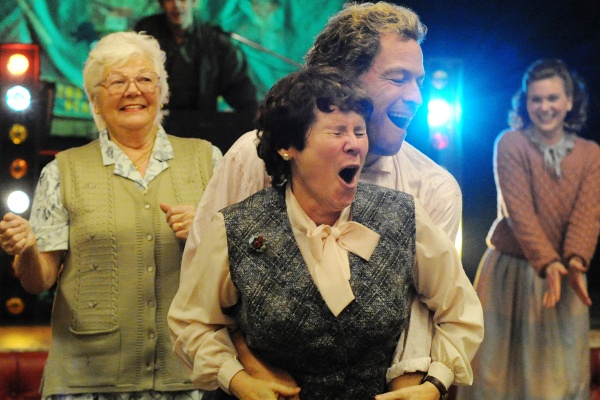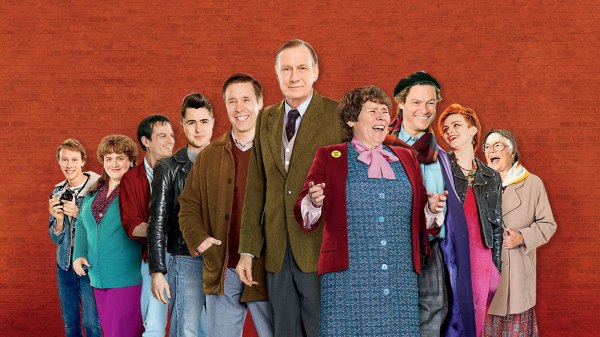
Probably few things have divided the British people more in the last forty years than Margaret Thatcher’s time as Conservative leader. The pivot point for that hatred/worship was the protracted dispute with the National Union of Mineworkers in 1984/85. Arthur Scargill led the miners in a fight to the death against pit closures and their way of life; Maggie Thatcher led the government and establishment that could never afford to lose that battle. Britain would have been a very very different place if history’s dice had fallen differently. It would make a great movie. But “Pride” isn’t it.
Whilst based on a surprising true story and whilst the politics of the strike forms the backdrop to the story, politics itself doesn’t really rear its head in the film (other than the rather one-sided perspective of the miners that they were ‘right’ and the Thatcher and police in general were ‘evil’). Instead, this is really a study of the enormous prejudice and real physical danger faced by the gay and lesbian community in London and the country in general.
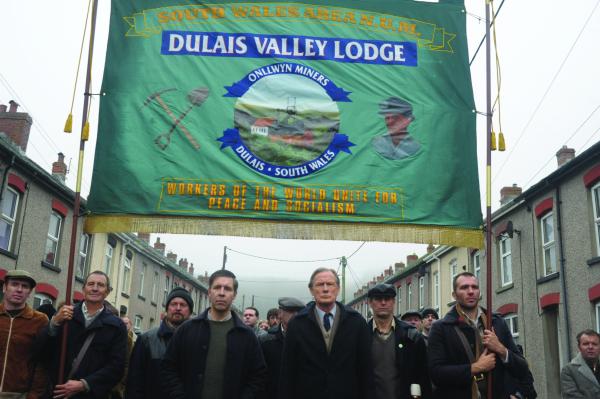
George MacKay (“Sunshine on Leith”) plays “Bromley” (real name Joe) – a 20-year old (so therefore under-age at the time) who is a closet gay. He lives a normal suburban middle-class life with his unsuspecting parents whilst also supporting the LGSM (‘Lesbians and Gays Support the Miners’) action group. This is led by Mark Ashton (Ben Schnetzer, “The Book Thief”), who drives forward the goal of raising financial aid for the striking miners’ families. Helping him are his assorted friends including gay couple Jonathan and Gethin (Dominic West and the brilliant Andrew – “Moriaty” – Scott), Mike (Joseph Gilgun), Jeff (Freddie Fox) and Steph (Faye Marsay… “I’m the ‘L’ in LGSM!”).
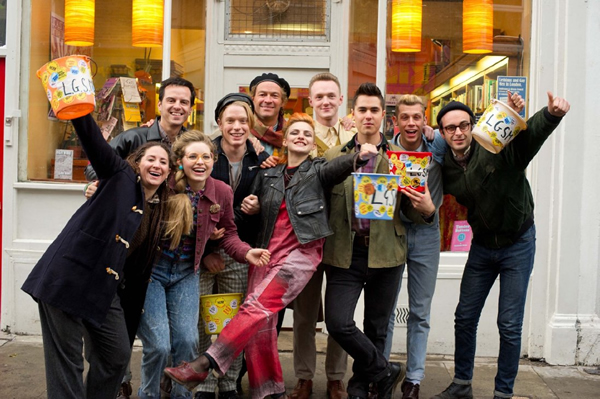
The irony is that the miners are generally speaking the most homophobic group that they could ever hope to find, so the union wants nothing to do with them or their money. Through necessity, the group focuses on one small Welsh village and on turning the community (their attitude that is!) to accept them and their gifts. Even this reduced scope proves to be an uphill struggle.
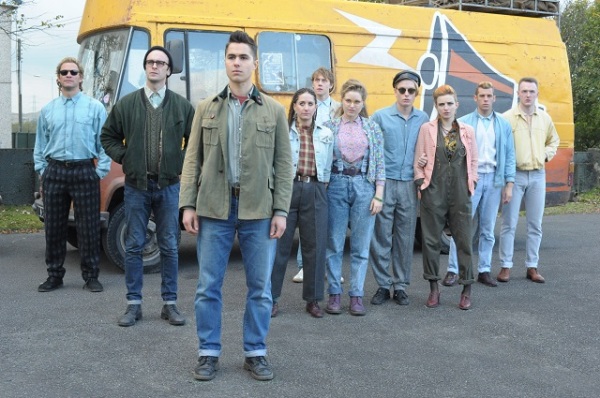
Whilst this is first and foremost a ‘comedy drama’, a menacing presence in the film is the AIDS virus: this was a time before retroviruses, when being diagnosed HIV-positive was a short and dark path to the graveside. Yet at a time when thousands were dying of the disease, Jonathan has the alternative moniker of “Number 2” – the second person in the country to be diagnosed as HIV-positive but mysteriously still alive.
The film is a tour de force of British acting talent. In particular (give or take the odd dodgy accent) the characters who make up the Welsh community are all superb: Paddy Considine (“Hot Fuzz”, “The Bourne Ultimatum”) plays the open and reasonable envoy first sent to London to meet LGSM; Bill Nighy in a quiet and understated performance (yes, you heard me right) plays Cliff; Imelda Staunton plays the hilarious role of Hefina, leader of the committee group; Jessica Gunning is pitch-perfect as Sian – a tea lady with a feisty attitude and Maureen (Lisa Palfrey) is a delightfully unlikable homophobic miner’s wife who stokes trouble with contemptuous glee. Finally, a good share of the comic lines go to the marvelous Menna Trussler as the bespectacled old dear Gwen.
Both MacKay and Schnetzer head up the younger end of the cast admirably: I was very rude about Schnetzer’s performance in my “Book Thief” review (see here), but he is a revelation in this film. Andrew Scott is as magnetic as always, and Dominic West shines as the nearest to Simon Callow’s memorable “Four Wedding’s…” character that we’ve seen, swapping “Bloody Brigadoon” Scottish dancing for lively disco-led moves.
Matthew Warchus, better known as a Broadway director and a relative stranger to the film set, directs with verve and style. The comic timing delivered through the final edit is very sharp. And the pathos and tragedy is handled very sensitively but very powerfully: there were a number of ladies in the cinema I saw who were in floods of tears when the lights came up. (Also, as a further warning for tissue supplies to take into the cinema, if like me you have a Welsh other half then the combination of panoramic Welsh landscapes and (very moving) close harmony singing will trigger severe homeland-sickness: you can take the girl out of Wales, but… ).
This film came close to perfect. But I had a few issues with the (generally excellent) script by Stephen Beresford. The reason for Mark’s dramatic change of heart in the middle of the film was rather poorly explained (if explained at all). And was it me or did one of Maureen’s rabidly homophobic sons do a U-turn in appearing with the other miners at the (remarkably, historically correct) gay pride march at the end of the film? If so, this seems to be a Hollywood-style and unnecessary candy-coating too far.
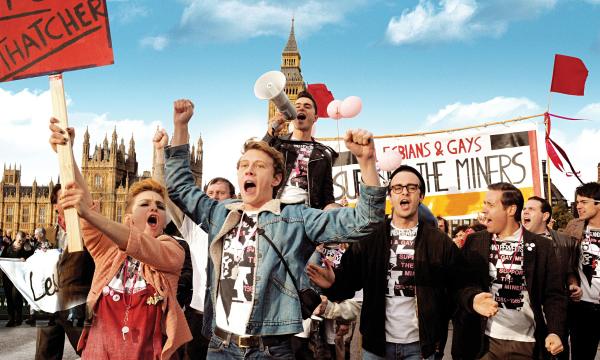
Above all, for me this is a film that both highlights how far we have come in thirty years in the area of gay rights and perhaps how far there still is to go. As a particularly touching example, seeing how difficult it was for the teenage Joe to come out to his parents in 1985 made me realise it is probably almost as hard today as it was then. Whilst levels of both expectation and acceptance are higher today, it is still a hard conversation to have… “Perhaps you’d like me to take you to the cinema to see a film Mum and Dad?”.
Fad Rating: FFFFf.
